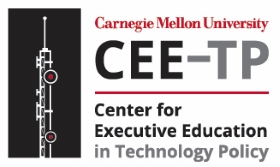5G Cellular Networks
Instructors: Jon Peha, Tom Power, Chris Boyer, Charla Rath, Ken Budka, Jeff Reed, Nishith Tripathi, Travis Russell, Hongwei Zhang
This course will provide an overview of emerging 5G technologies and standards, the emerging ecosystem of equipment and service providers, and what all of this could mean for policymakers. It includes how 5G differs from previous generations, and the types of applications and uses that this new generation of technology will enable, and the implications for various sectors of the economy and society, such as agriculture, manufacturing, electric power grids, health care and public safety. It includes the business models for 5G operators, and the new industry structure that may result. It includes implications for spectrum policy, including the roles of low-band, mid-band and emerging high-band spectrum, and the roles of spectrum that is licensed exclusively and spectrum that is shared. It includes the challenges of deploying towers, small cells and backhaul, and issues faced by policymakers who regulate that deployment. It includes the security issues of 5G, and how they compare with previous generations. It includes a discussion of Open Radio Access Networks (O-RAN), and the implications for competition among equipment vendors, security, integration, and price.
- This course is intended for people involved in the public policy and business issues of the next generation of cellular technology, including spectrum policy, trade policy, competition policy and cybersecurity policy.
- Upon completing the course, participants will have a greater understanding of a wide variety of opportunities and challenges associated with 5G, and its implications for policymakers.
- It is likely that most participants will come with some knowledge of the technical, business or regulatory issues of previous generations of cellular technology. However, because of the interdisciplinary nature of the material, it is not assumed that any individual participant will have detailed prior knowledge of cellular technology, business or policy.
